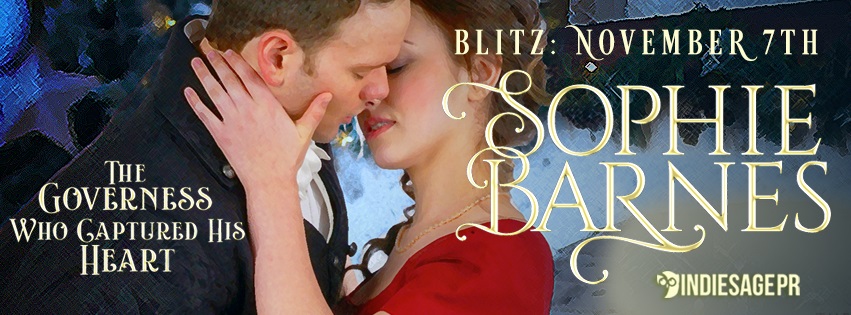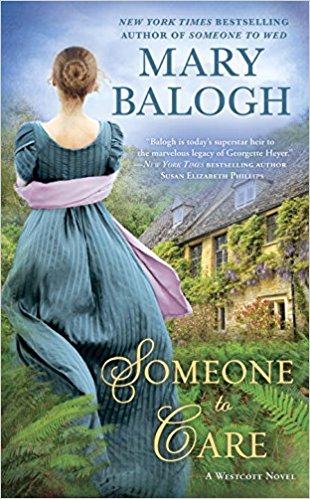 Someone to Care (Westcott, #4) by Mary Balogh
Someone to Care (Westcott, #4) by Mary Balogh Format: eARC
Source: supplied by publisher via NetGalley
Formats available: paperback, large print, ebook, audiobook
Genres: historical romance
Series: Westcott #4
Pages: 384
Published by Berkley on May 1, 2018
Purchasing Info: Author's Website, Publisher's Website, Amazon, Barnes & Noble, Kobo, Bookshop.org
Goodreads
Once the Countess of Riverdale, Viola Kingsley throws all caution to the wind when adventure calls in the form of a handsome aristocrat. . . .
Two years after the death of the Earl of Riverdale, his family has overcome the shame of being stripped of their titles and fortune--except for his onetime countess, Viola. With her children grown and herself no longer part of the social whirl of the ton, she is uncertain where to look for happiness--until quite by accident her path crosses once again with that of the Marquess of Dorchester, Marcel Lamarr.
Marcel Lamarr has been a notorious womanizer since the death of his wife nearly twenty years earlier. Viola caught his eye when she herself was a young mother, but she evaded his seduction at the time. A prize that eluded him before, she is all the more irresistible to him now although he is surprised to discover that she is as eager now for the excitement he offers as he is himself.
When the two defy convention and run away together, they discover that the ties of respectability are not so easily severed, and pleasure can ensnare you when you least expect it.
My Review:
Who are we when we are no longer who we thought we were?
That’s the question that is initially before Viola Kingsley, who spent over 20 years believing that she was the Countess of Riverdale, only to discover that her marriage, an unhappy union that had produced three children who are the light of her life, was never valid.
The man she thought was her husband was already married. While the discovery of this fact after his death made her children bastards-in-law, her not-quite-husband was certainly a bastard-in-deed. His sisters still want to dig him up just so they can kill him again.
 The previous books in this series, Someone to Love, Someone to Hold and Someone to Wed, have told the stories of the other people affected by the late Humphrey Westcott’s assholishness. At least three stories were left to tell. One is that of the youngest of the disinherited children, a story that I hope we get to see. Another is that of the young man who believed he was the son-and-heir of Riverdale, only to find out that he wasn’t.
The previous books in this series, Someone to Love, Someone to Hold and Someone to Wed, have told the stories of the other people affected by the late Humphrey Westcott’s assholishness. At least three stories were left to tell. One is that of the youngest of the disinherited children, a story that I hope we get to see. Another is that of the young man who believed he was the son-and-heir of Riverdale, only to find out that he wasn’t.
The third story is Viola’s. She believed she was Countess of Riverdale. She discovered that she was not, and never had been. If she is not who she thought she was, then who is she?
Polite society immediately cut her and her children. They are none of them to blame, but they are the ones who will suffer the consequences. But Camille, Harry and Abigail are just barely, or in Abigail’s case, not quite, into adulthood. While their lives have been irrevocably changed, they still have those lives before them, and can make of them, if not what they originally expected, at least whatever they will.
Viola is 42 at the time of Someone to Care, and the scandal is two years behind her. Well, the scandal feels ever present, but the breaking of it is in the past. Her children are grown or nearly so. While she is financially secure, she is no longer part of society and happy not to be so. But what does she do with the rest of her life?
Her family wants her to be happy. And they keep smothering her in their care, in the hopes that they can make her happy, or see her happy. But even smothering with love is still smothering, and Viola has finally had enough. She needs time to herself, to figure out who she is and where she goes next.
And into that question steps Marcel Lamarr. Marc has a well-earned reputation as a rake and a libertine, but once upon a time, when they were both a bit younger, the “fearsomely” handsome Lamarr and the beautiful young mother Viola embarked on a flirtation. Merely a flirtation, because Viola remained faithful to her vows and Marc did not dally with married women.
Which does not mean that they were not sorely tempted to break all the rules. But they did not, and when Viola felt her heart to be in too much danger, she told him to go. And because he felt his own heart to be equally at risk, he went.
In the middle of a journey that neither of them planned to take, they meet again. But the rules are different now. Viola is no longer married, not that she ever was. And they discover that their unresolved feelings for each other are still there. And they believe that no one will miss them if they take a little time for themselves, outside of their regular lives, with each other.
They are both wrong. And so very, very right.
Escape Rating B: I absolutely loved the first half of this book. And I was so very disappointed with the second half.
The first half was so much fun at least partially because we seldom see romance that feature women “of a certain age”. Viola is 42, she’s been married (well at least she thought she was married) she’s been widowed (sorta/kinda), she’s the mother of grown children who love her but no longer need her, and she’s suffered a tremendous reversal of fortune through no fault of her own and is doing her best to soldier on.
But she has no idea who she is now that she is no longer any of the things she thought she was. While it’s a problem that was thrust upon her, it is one that we can all sympathize with. Anyone who has ever taken their identity from their career faces this loss if they get laid off or when they retire. And many parents go through “empty nest” syndrome when their children grow up and move away.
Viola, after a chance meeting with an old flame, decides to take a little time to live just for herself. She’s going to be selfish, and it’s something that she’s never done in her life. They are both adults, they are neither of them married or otherwise encumbered, who is to care if they choose to spend some time together? Who should it matter to if they have an affair, as long as they both understand that the entire situation is temporary?
When they are discovered, the story moves from its delightfully unpredictable path to a predictable one, and one that I personally always find annoying in the extreme. Because once they are discovered, the entire story descends into a giant misunderstandammit, a misunderstandammit that seems obvious to everyone except the protagonists, and that takes half the book to finally resolve.
He believes that she was through with him, because he didn’t listen to what she actually said or give her a chance to explain. Then he compounds that error by declaring to both of their families that they are betrothed, when in fact he was about to let her go, however reluctantly.
And, of course, they have fallen in love with one another, even though they are both way too stubborn to admit it. Meanwhile, Viola, and rightfully so, is unwilling to enter into another loveless marriage, but is equally unwilling, because of the way that women have been trained, to make either a scandal or a fuss, or to hurt all of the people who suddenly want them to marry by declaring that it was never so.
The mess goes on, and on, and unfortunately on. They do finally talk to each other again, at least enough to resolve the tangle and reach their happily ever after, but it was torture getting to it.
I would have loved this book if they had continued being as unconventional as they were in the first half. That would have been different – and oodles of fun.

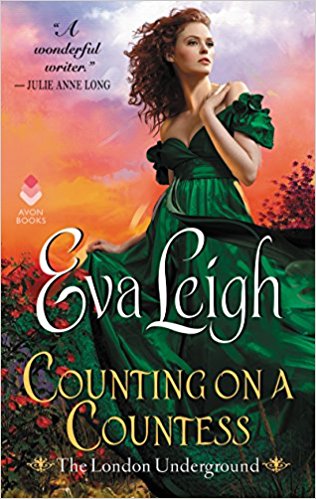 Counting on a Countess (The London Underground, #2) by
Counting on a Countess (The London Underground, #2) by  Escape Rating B: I picked up Counting on a Countess because I really enjoyed the first book in this series,
Escape Rating B: I picked up Counting on a Countess because I really enjoyed the first book in this series, 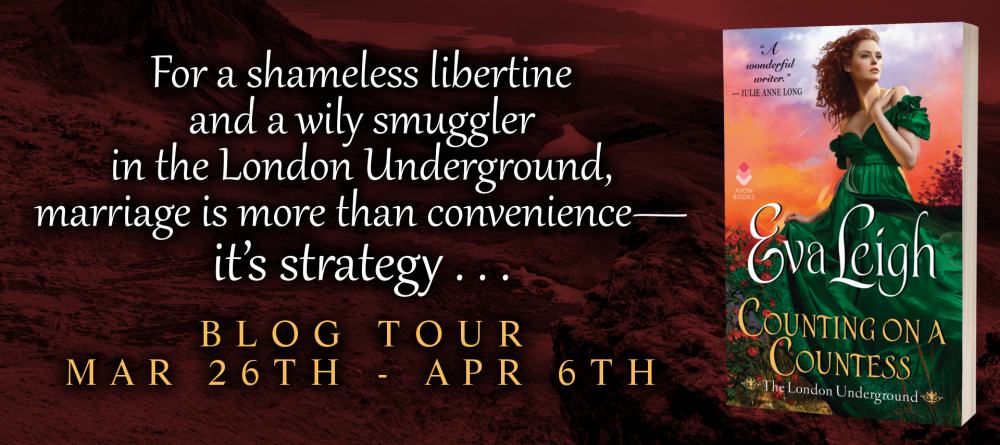


 Highland Dragon Master (Dawn of the Highland Dragon, #3) by
Highland Dragon Master (Dawn of the Highland Dragon, #3) by  Every book in this series is different. The first book,
Every book in this series is different. The first book,  Escape Rating B+: Highland Dragon Master was a lot faster paced than
Escape Rating B+: Highland Dragon Master was a lot faster paced than 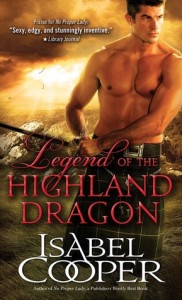 This is also a story where the ends don’t justify the means, and where Erik has to go through a certain amount of soul-searching to come to that conclusion. He came on this quest in search of treasure to add Scotland in their perpetual war with England. And he finds it. But, as has been discovered before in other times and other lands and even among the stars, some gifts come at just too high a price.
This is also a story where the ends don’t justify the means, and where Erik has to go through a certain amount of soul-searching to come to that conclusion. He came on this quest in search of treasure to add Scotland in their perpetual war with England. And he finds it. But, as has been discovered before in other times and other lands and even among the stars, some gifts come at just too high a price. Midsummer Delights: A Short Story Collection by
Midsummer Delights: A Short Story Collection by 
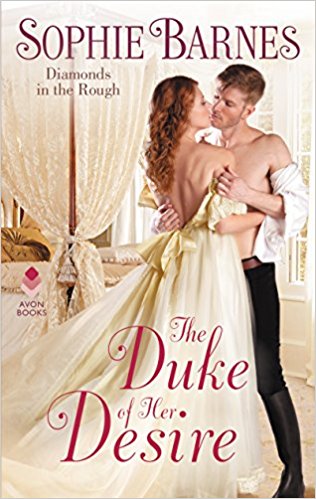 The Duke of Her Desire (Diamonds in the Rough #2) by
The Duke of Her Desire (Diamonds in the Rough #2) by  In the past couple of months I have read a lot of Sophie Barnes, and they’ve all been a lot of fun, particularly
In the past couple of months I have read a lot of Sophie Barnes, and they’ve all been a lot of fun, particularly 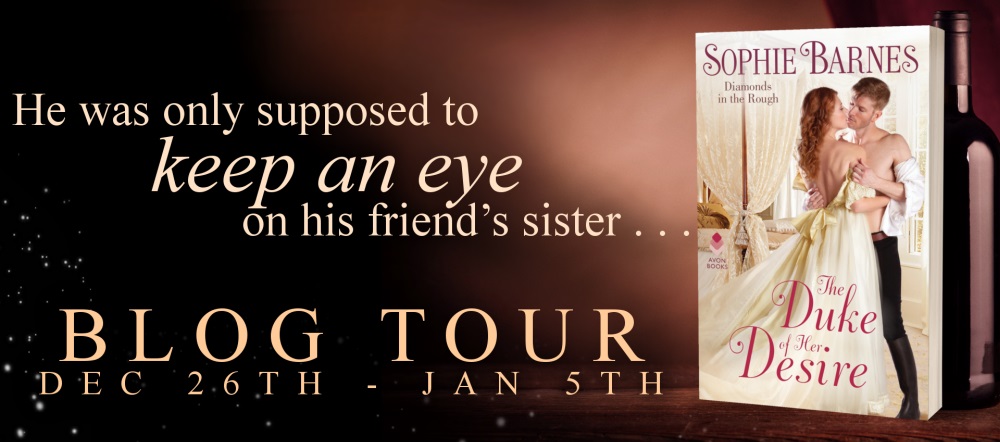
 Christmas at Thorncliff Manor (Secrets at Thorncliff Manor, #4) by
Christmas at Thorncliff Manor (Secrets at Thorncliff Manor, #4) by 
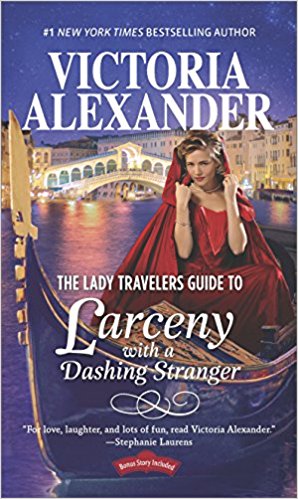 The Lady Travelers Guide to Larceny with a Dashing Stranger (The Lady Travelers Society, #2) by
The Lady Travelers Guide to Larceny with a Dashing Stranger (The Lady Travelers Society, #2) by 
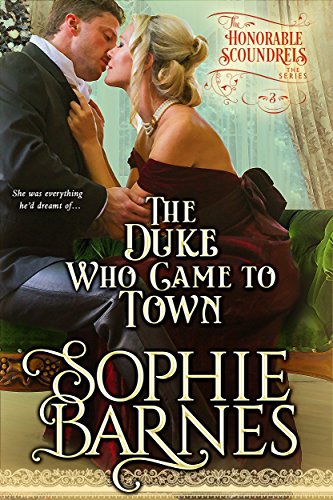 The Duke Who Came To Town (The Honorable Scoundrels #3) Formats available: ebook
The Duke Who Came To Town (The Honorable Scoundrels #3) Formats available: ebook  Josephine Potter is left at home in London while her next sister Louise goes to the north of England to take up a position as a governess in
Josephine Potter is left at home in London while her next sister Louise goes to the north of England to take up a position as a governess in  Escape Rating B: This series is fun, brief, and meant to be read all together. Three lunch breaks might just about do it – these stories are quite lovely and equally short.
Escape Rating B: This series is fun, brief, and meant to be read all together. Three lunch breaks might just about do it – these stories are quite lovely and equally short.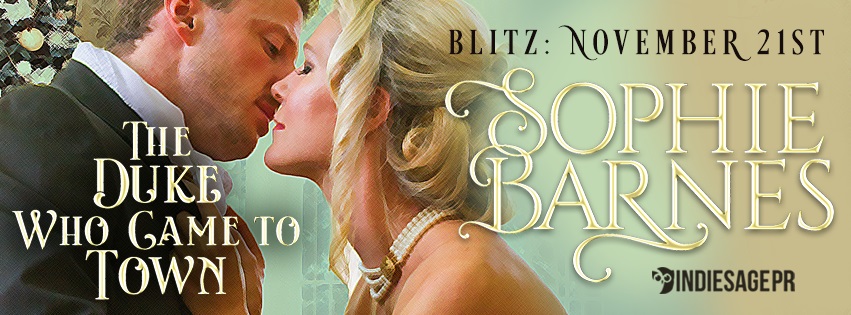
 The Earl Who Loved Her (The Honorable Scoundrels, #2) by
The Earl Who Loved Her (The Honorable Scoundrels, #2) by 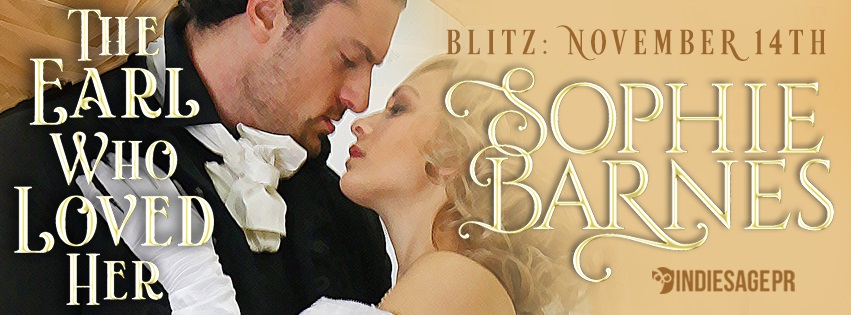
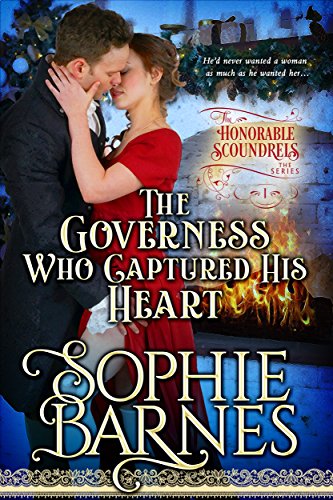 The Governess Who Captured His Heart (The Honorable Scoundrels, #1) by
The Governess Who Captured His Heart (The Honorable Scoundrels, #1) by 